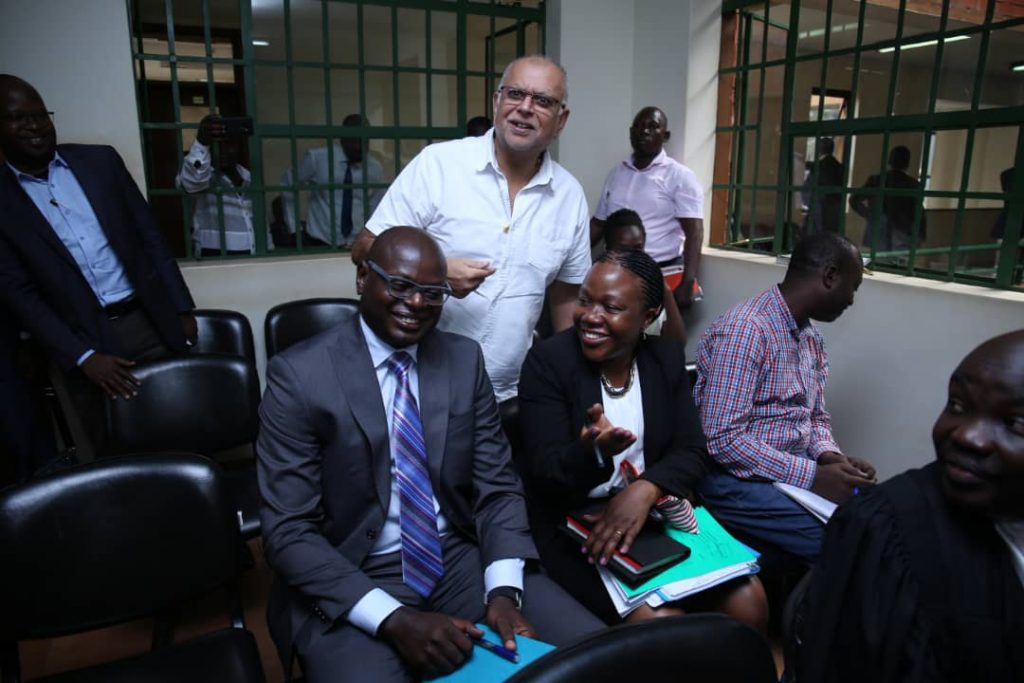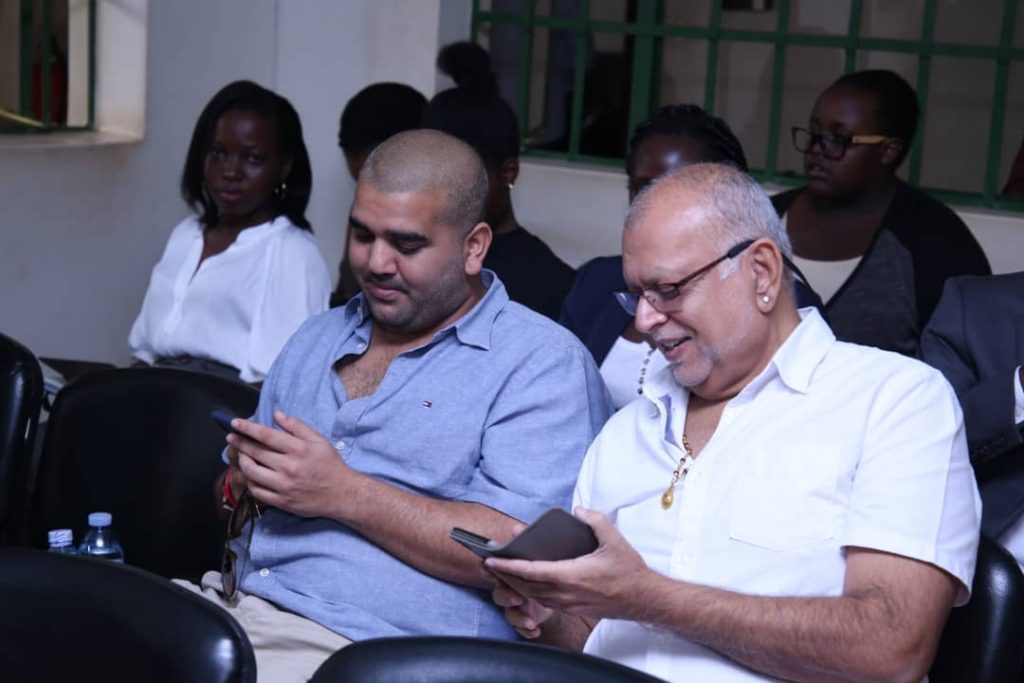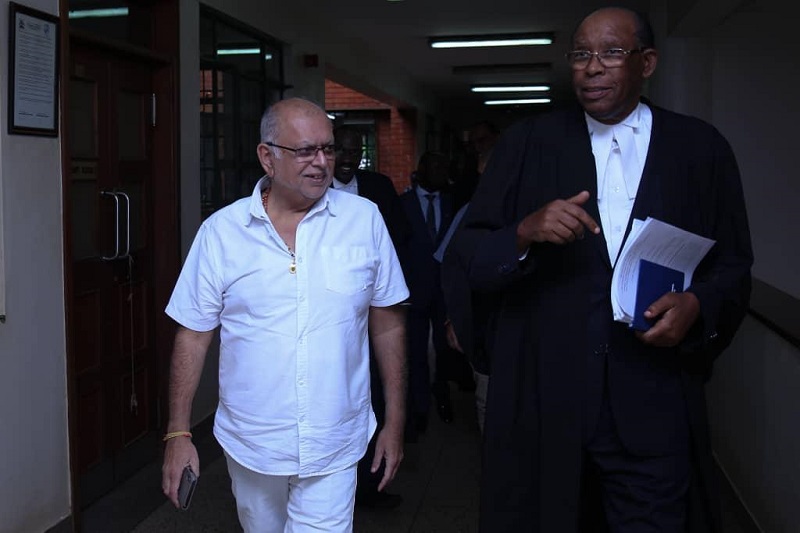Ruparelia Group Chairman, Dr Sudhir Ruparelia and Meera Investments Limited, one of his real estate companies, have applied to the Commercial Court, asking it to dismiss case HCCS 493 of 2017 brought against them by Crane Bank (in Receivership).
The applicants in Miscellaneous Application No. 320 of 2019 argue that Crane Bank (in receivership) has “no locus standi to bring the suit” against them and that the case is “barred by law.”
Black’s Law Dictionary, 10th Edition, defines locus standi to mean: “The right to bring an action or to be heard in a given forum.”
In HCCS 493 of 2017, Bank of Uganda through Crane Bank (in receivership) alleges that the businessman fraudulently took out up to $92.8m (about Shs334b) and another Shs8.2 billion of depositors’ money from Crane Bank for personal gain through various payments to two construction companies and a technology company.

The companies alleged to have been used by Sudhir for these payments have since vehemently rejected the above claims and produced evidence to discredit BoU’s claims.
BoU through Crane Bank (in receivership) also alleges that the entire land where Crane Bank had branches, was transferred to Meera Investments Limited, another company owned by Sudhir and subsequently leased the land to Crane Bank.
Crane Bank now wants back the 48 freehold certificates together with duly executed transfer deeds in respect of each one of them in favour of Crane Bank or its nominee.
A receiver cannot sue or be sued
In their preliminary objections before Hon Mr. Justice David K. Wangutusi, today, July 3, 2019 Sudhir through his lawyers, Kampala Associated Advocates, argued that a receiver or an entity in receivership- in this case Crane Bank cannot sue or be sued.
Kampala Associated Advocates was represented by Senior Partner, Peter C. R. Kabatsi, Managing Partner Joseph Matsiko and Partner Elison Karuhanga.
“The suit was filed when Crane Bank Limited was in receivership. At issue therefore is; can a suit be filed when a financial institution is in receivership? Our submission is that the receiver has no locus to file the suit,” argued the lawyers.

Bank of Uganda on the 20th October 2016 took over the management of Crane Bank and pursuant to Sections 87 (3) and 88 (1) (a) & (b) of the Financial Institutions Act 2004 and on the 20th of January 2018 BoU placed the bank under receivership pursuant to Section 94 of the FIA.
Sudhir’s lawyers further argued that the FIA 2004 provides three ways in which BOU may takeover and resolve a financial institution in distress and these include: statutory management, receivership, and liquidation. They added that while the law allows the statutory manager and the liquidator to sue, it does not allow the receiver to sue or be sued.
“From 20th October, 2016 to 20th January, 2017 Bank of Uganda could institute a suit under Section 89 (1),(2)(e),(9) of the FIA. We shall submit that they lost that power on 20th January, 2017 when they placed the Plaintiff under receivership,” submitted the lawyers, adding: “A financial institution under receivership is therefore a closed financial institution. When a financial institution is placed under receivership the statutory manager’s powers cease from that day and for all intents and purposes the institution is closed.
Section 95 of the FIA 2004 only grants a receiver powers to:
- arrange a merger with another financial institution;
- arrange for the purchase of assets and assumption of all or some of the liabilities by other financial institutions;
- arrange to sell the financial institution;
- liquidate the assets of the financial institution.
But even then this must be done within 12 months of taking over as a receiver.
“The powers of the receiver are therefore limited, both in extent and in time. He can only exercise the four powers mentioned above and this has to be done within twelve months,” Sudhir’s lawyers submitted, adding: “Section 95 does not mention suing as one of the things he (the receiver) will do in the exercise of his powers.”
“Under the FIA, the receiver cannot file a law suit. When the legislature does not grant an express power to a statutory entity to sue then that entity simply cannot sue. This very point was determined by the Supreme Court of Uganda,” argued KAA Advocates.
“If a party cannot be sued, it follows that that party cannot sue. We are fortified in this by the binding decision in the supreme court in the case of The Commissioner General Uganda Revenue Authority vs Meera Investments Limited SCCA 22 of 2007,” the lawyers further submitted.
Non-Ugandan citizens cannot own mailo or freehold land
KAA lawyers also submitted that BoU’s claim on Meera Investments’ land is barred by law since Crane Bank- by virtue of being majority owned by non-Ugandan citizens is a non-citizen and therefore barred from acquiring or holding mailo or freehold land in Uganda by Section 40 (1), (4), (7)(a)(d), and (8)(a) of the Land Act.
“The majority shares in CBL are held by a company incorporated in Mauritius. A further 4% is held by Mr. Jitendera Sanghani, a British national. This would in effect mean that a total of 51.33% of the shares are held by non-citizens…..It is well settled that under no circumstances can a non-citizen hold freehold land and a number of authorities elucidate this Constitutional point.”
The lawyers also dismissed Crane Bank’s prayers to have the land held in trust for them by a designated nominee saying that doing so would “would defeat the express provisions of Article 237 of the Constitution” shich says that mailo land and freehold land cann only be owned by Ugandan citiznes.
“The purpose of this Court is to interpret the transaction in accordance with the law and not to side step the law with ingenious legal trusts. A trust is a creature of the doctrine of equity and the branch of law called equity and trusts. One of the maxims of equity is that: “equity follows the law and will therefore not allow a remedy that is contrary to the law”. The Court cannot construct this trust because it will be an illegal trust. A court of law cannot grant an illegal prayer,” closed the lawyers in their submissions.
Justice Wangutusi has set August 26, for a ruling on the objection.

 Letters to My Younger Self: Humphrey Asiimwe—"Ambition Without Purpose Leads Nowhere"
Letters to My Younger Self: Humphrey Asiimwe—"Ambition Without Purpose Leads Nowhere"


